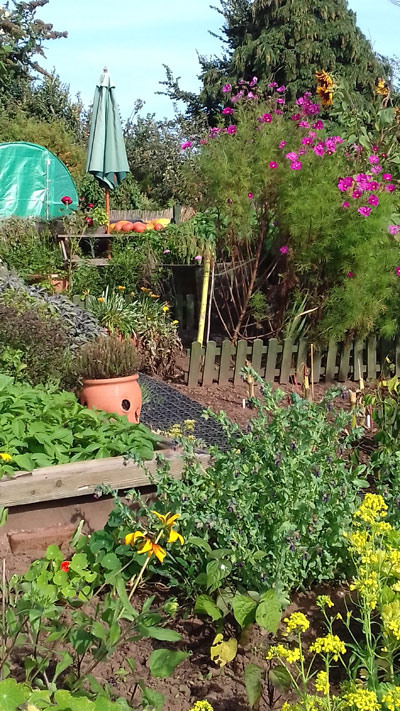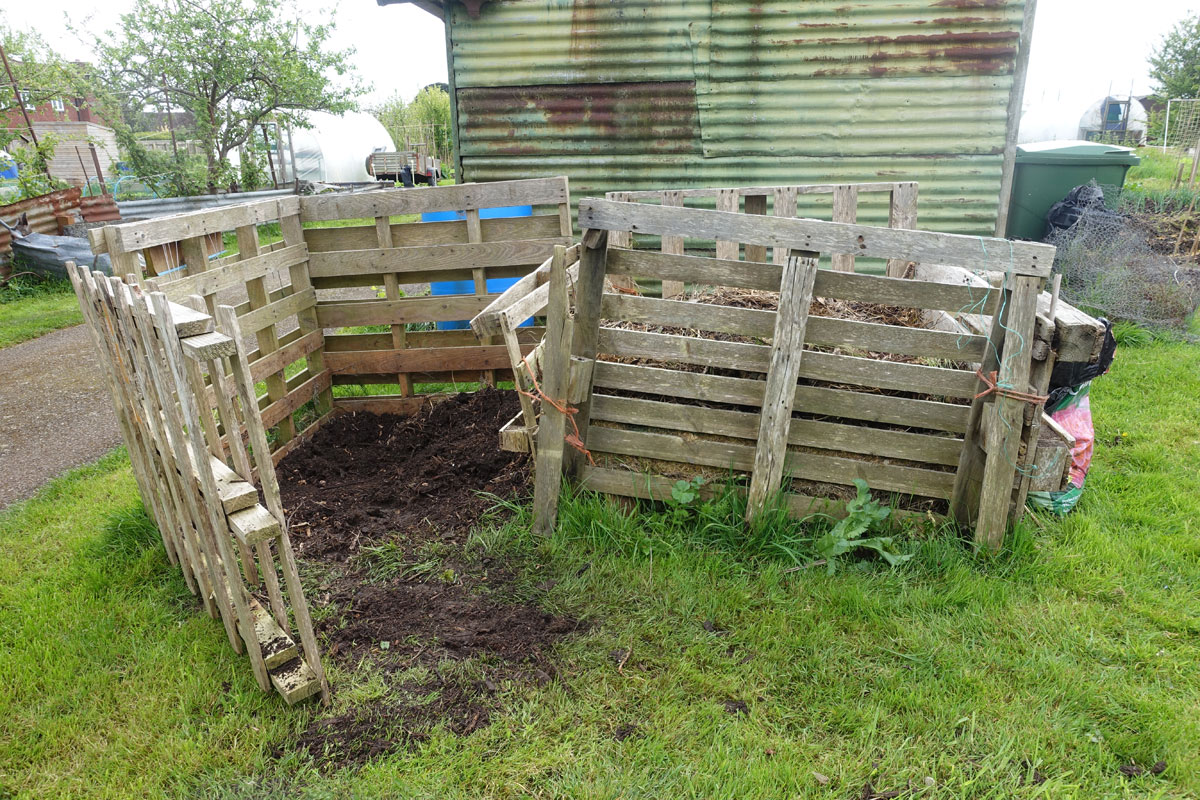
Go-to contacts for composting:
On Pound Lane chat to Tony (PL37).
On Hamilton Lane chat to Joy (HL11), Bill (HL60), John (HL71), Anne (HL133), Dave (HL169) and John (HL250).
The first aim of the compost heap is to enable allotment waste to be removed from the growing area without the need for bonfires or trips to the tip. The second aim is to make a wonderful soil conditioner
A compost heap is better if lined, for example with carboard between the pallet side and the compost, and covered. My bins are lined but I cover the heap only after it has been turned.
The basic idea is to put almost all allotment waste (not cooked food or animal bones from home) on the heap. Most vegetable matter can be put on the heap as it is but thick stems, such as sprout stems, are better chopped into small pieces or battered with an axe; woody material, such as raspberry canes, are better cut into small pieces or used as a base for the next heap. Very tall stems, such as those from Jerusalem artichokes and asparagus, are better cut so they can fit easily into the heap.
Much is written about the balance between ‘brown’ and ‘green’ additions to the heap but suffice it to say that it is best to have a variety of ingredients. A heap made solely from grass mowings would not work well. You may wish to follow the links below for more information.
The RHS has a good article on compost.
https://www.rhs.org.uk/advice/profile?pid=444
Charles Dowding (No-Dig) has a useful article, including a ‘good to compost’ section with an explanation of why it’s ok to put blighted potato haulms on the heap. He also adds perennial weed roots, including bindweed, but I haven’t been so brave! I dry any such roots for a few months first.
https://www.charlesdowding.co.uk/advice-on-making-compost
Case Study – HL250
There are probably as many opinions on the best way to make compost as there are compost heaps so I will describe what I do on HL 250.
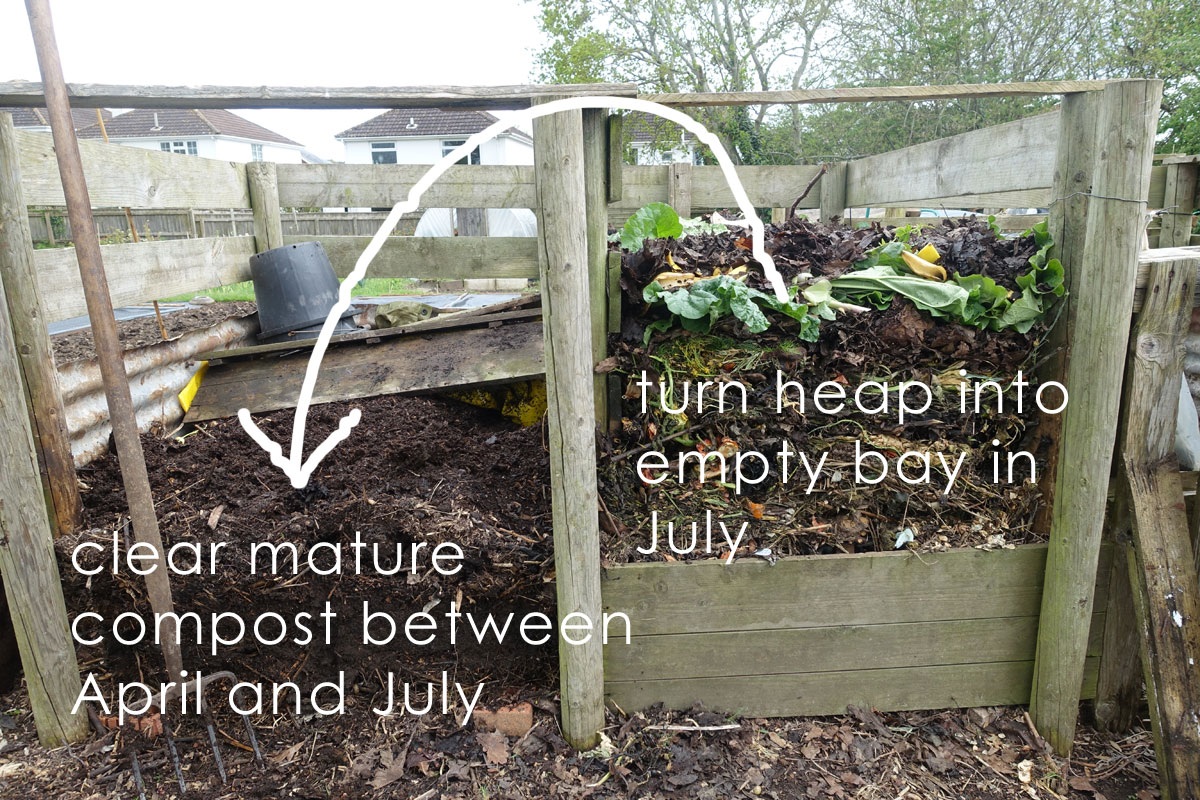
I use two adjacent wooden bins, the right-hand one for putting in raw organic material such as broad bean haulms, flower stems and small pieces of raspberry cane and the left-hand bin to house this semi-mature pile several months later. I make the first pile from allotment waste collected November-July and this is turned into the empty left-hand bin in July and spread on the plot in November. The second pile is made from July – November waste and turned into the adjacent empty bin in late November and spread on the plot in April: I could leave this until the bin is needed again in July but I don’t mind some of the compost not being fully mature. So I have one bin with stage one compost (raw to semi-mature) and the second bin with stage two compost (semi-mature to mature). The dates are not critical and you may prefer to allow a full year or more without turning the heap.
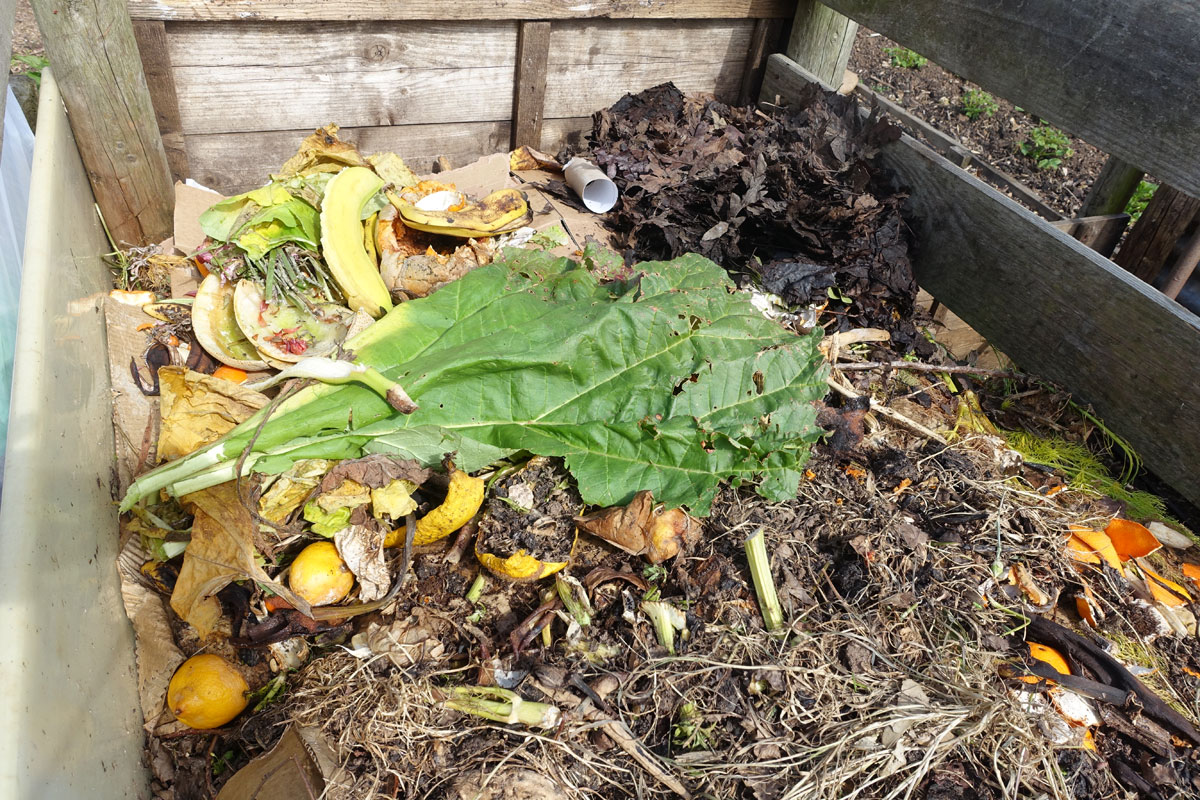
I put all almost all organic waste from the plot in the ‘raw’ bin. I have not added soil borne diseased roots, such as onion white rot bulbs, or, if I had it, club root brassica roots. I do add potato haulms. I bring from home all veg and fruit peelings and, if I had a garden, I would add grass cuttings, hedge trimmimgs, etc. Brown card, such as loo rolls and packaging, is also added. I grow green manure, such as phacelia and comfrey, and this is cut and added to the heap.
When I turn the heap I try to alternate the semi-mature material with 2-3 year old woodchip and several barrows of Bruce’s FYM. I use woodchip for paths; scraping off the surface bits after a couple of years exposes fine material below, ideal for the heap.
As a follower of the no-dig approach I spread the compost on the surface as a mulch but some people dig in their compost.
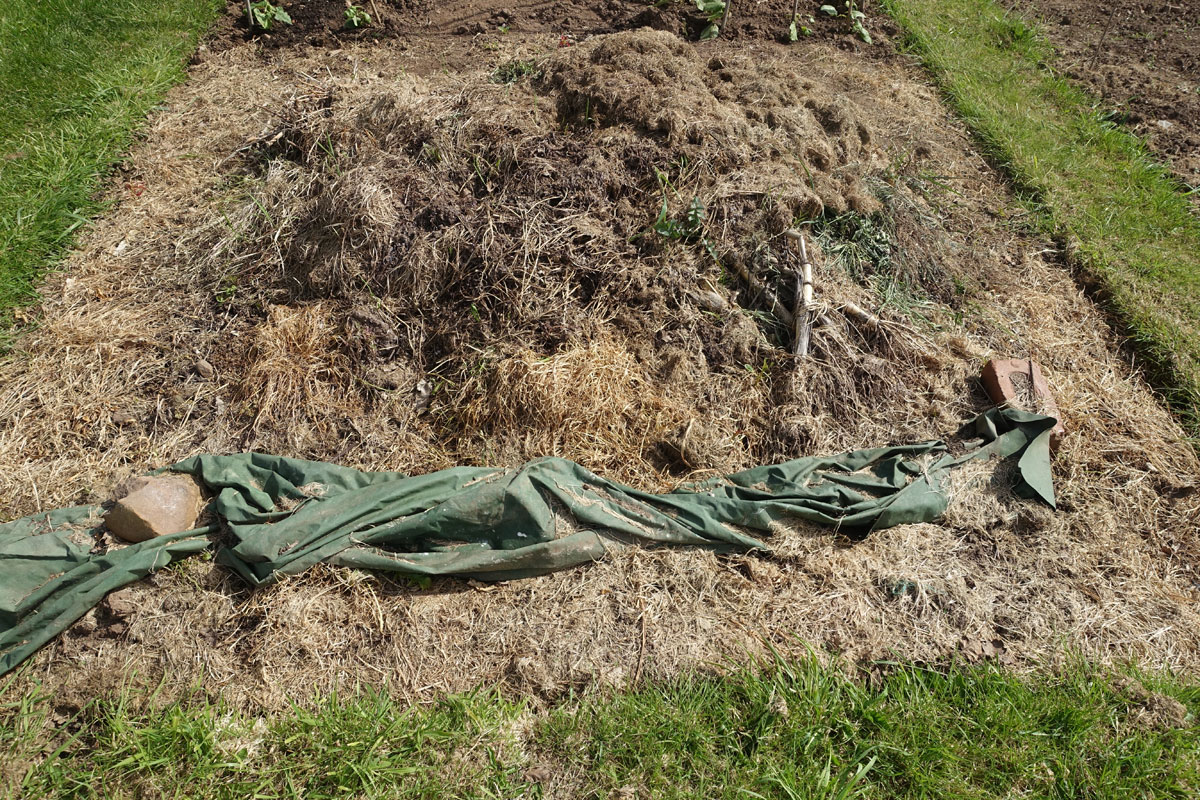 My neighbour doesn’t use a bin but just piles up his waste at the end of his plot and covers it with a tarpaulin for a year or two before spreading it on his plot. Do whatever is best in your circumstances.
My neighbour doesn’t use a bin but just piles up his waste at the end of his plot and covers it with a tarpaulin for a year or two before spreading it on his plot. Do whatever is best in your circumstances.
